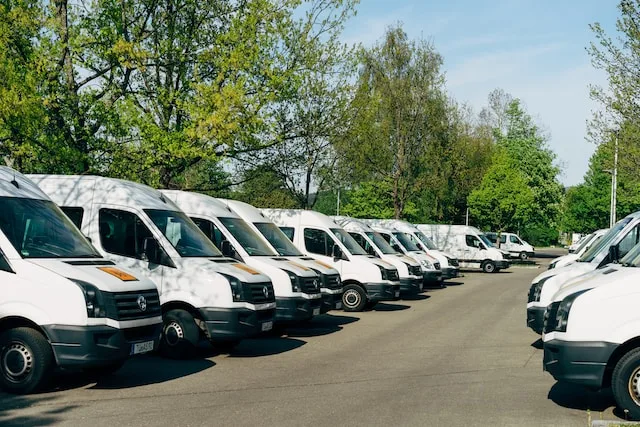Understanding the Pros and Cons of Leasing Versus Buying a Used Van
In the logistics sector, the decision to lease or purchase a used van can be a subject of intense deliberation. This is because both choices present unique advantages and downsides. In this article, we shall dive deep into unraveling the pros and cons of leasing vs buying a used van.
Leasing a Used Van: Advantages and Considerations
Leasing a used van presents a compelling option for individuals and businesses alike. One of the primary advantages is the potential for lower monthly payments compared to buying. Leasing allows you to use the van for a predetermined period, typically two to three years, without the long-term commitment of ownership. This flexibility is particularly advantageous for businesses with evolving needs or individuals who prefer driving a newer model more frequently.
Maintenance costs are often lower with leased vans, as they are typically covered by the manufacturer’s warranty during the lease period. Additionally, leasing provides the opportunity to drive a well-equipped van with advanced features that might be financially challenging to afford through a purchase. However, it’s important to be mindful of mileage restrictions and potential fees for exceeding the agreed-upon limits.
Buying a Used Van: Ownership and Long-Term Benefits
Opting to buy a used van comes with the undeniable perk of ownership. Once the financing term is complete, the van is yours, and you can use it as long as you see fit without worrying about mileage restrictions or lease-end penalties. This can be particularly appealing for businesses seeking a long-term asset or individuals who plan to keep the van for an extended period.
Buying a used van also allows for customization and modifications, providing the flexibility to tailor the vehicle to specific business or personal requirements. While monthly payments may be higher compared to leasing, the overall cost of ownership tends to be lower in the long run. It’s important to consider factors such as depreciation, resale value, and potential maintenance costs when evaluating the financial aspects of buying a used van.
Depreciation and Resale Value
Depreciation is a critical factor influencing the financial aspects of both leasing and buying a used van. When you lease, you only pay for the van’s expected depreciation during the lease term, which can result in lower monthly payments. However, you won’t build any equity in the vehicle, and at the end of the lease, you’ll need to secure another financing arrangement if you wish to continue driving a van.
On the other hand, buying a used van means you’re investing in an asset that will depreciate over time. While this may result in higher initial costs and monthly payments, it also means you own a tangible asset with potential resale value. If well-maintained, used vans can retain a significant portion of their value, providing you with an opportunity to recoup some of your investment when it comes time to sell or trade in the vehicle.
Flexibility and Usage Patterns
Understanding your usage patterns and preferences is crucial in determining whether leasing or buying a used van aligns better with your needs. If you prefer driving a new model every few years, have predictable mileage, and are drawn to lower monthly payments, leasing might be the more suitable option. On the other hand, if you anticipate using the van for an extended period, customizing it to your specific requirements, and eventually owning the asset, buying might be the more practical choice.
Consider the nature of your business or personal requirements. For businesses with fluctuating transportation needs or those in industries where having the latest models is advantageous, leasing provides unmatched flexibility. Conversely, if your van is a central and consistent part of your operations, owning might offer stability and long-term cost savings.
Financial Considerations: Upfront Costs and Monthly Payments
When comparing leasing and buying a used van, it’s crucial to assess the financial aspects, including upfront costs and monthly payments. Leasing typically involves lower upfront costs, making it more accessible for individuals or businesses with budget constraints. Monthly payments during the lease term are also generally lower than loan payments for buying.
Buying, however, requires a larger upfront investment, including a down payment and other associated fees. While monthly loan payments may be higher, they contribute to building equity in the van. It’s essential to evaluate your budget, cash flow, and long-term financial goals to determine which financing option aligns best with your financial circumstances.
Environmental Considerations: Sustainable Choices
In an era where environmental consciousness plays a significant role in decision-making, it’s worth considering the sustainability aspect when choosing between leasing and buying a used van. Leasing allows you to regularly upgrade to newer, more fuel-efficient models, contributing to a lower carbon footprint. On the other hand, buying a used van means making a more extended commitment to a specific vehicle, potentially bypassing the environmental benefits of newer, eco-friendly models.
Ultimately, the decision to lease or buy a used van hinges on a careful analysis of your unique circumstances, preferences, and financial considerations. Leasing offers flexibility, lower monthly payments, and the opportunity to drive newer models regularly. Buying, on the other hand, provides ownership, long-term cost savings, and the ability to customize the van to your specific needs.



